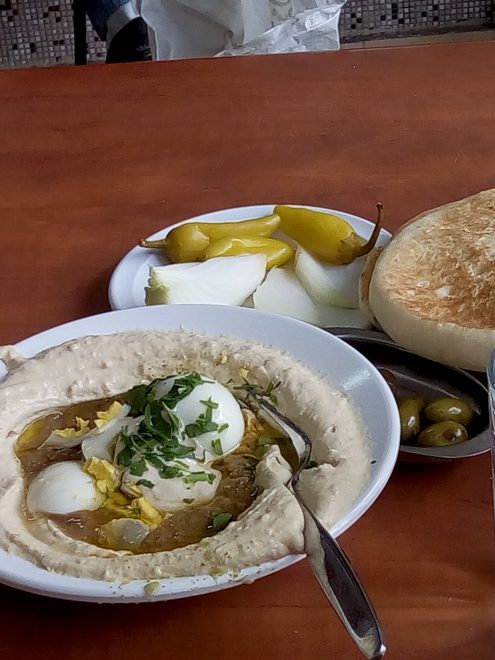Israelis, says research published by the University of Washington, enjoy the world’s healthiest diet. The study, Global Burden of Disease, was conducted by Dr Christopher Murray, Director of the Institute for Health Metrics and Evaluation, University of Washington, and published in the UK medical journal The Lancet. It followed the diets of people in 195 countries, between 1990 to 2017.
Dr. Murray writes, “The countries with the lowest rates of diet-related deaths were Israel (89 deaths per 100,000 people), France, Spain, Japan, and Andorra.”
It’s no wonder that the Israeli diet is the world’s healthiest. Israelis consume a variety of vegetables, fresh fruit, grains, seeds and local animal protein products as a matter of course. Tradition and history influence these choices. Much of the population still remembers the austerity of country’s early years, when beef was a rare luxury and chicken was reserved for Shabbat. Back then, housewives knew dozens of recipes for that meaty vegetable, eggplant. Rice-shaped pasta was invented to substitute for the imported grain. Olive oil was expensive and imported, unless you were lucky enough to live in the country, where local Arab and Druze villagers milled their own olives.
Today, advanced agricultural techniques have brought a huge variety of fresh, locally-grown foods to the Israeli market. Shoppers can step out to the supermarket or shuk confident that they’ll find all the produce on their lists, and good local olive oil with a stamp of standards approval on the label. And yes, people are still eating eggplant. In fact, Israel has the largest number of vegans per capita in the world.
But let it be said: although an estimated 5% of Israelis identify as vegan, most shoppers bring dairy products, eggs, poultry, fish and meat home for dinner. What’s the difference between that an the ordinary Western diet, then?
The difference is in the approach. Israelis favor dishes with Mediterranean ingredients. Not much red meat. Lots and lots of vegetables and salads. From working-man’s humus joints where they put a little dish of olives, hot relish and sliced onions to go with your meal – to fancy restaurants, Israelis expect to find vegetables on the menu. Israelis even eat salad for breakfast. It’s a diet that suits the hot climate and reflects culinary influences of over 60 ethnic streams.
“This study affirms what many have thought for several years – that poor diet is responsible for more deaths than any other risk factor in the world,” Dr. Murray writes. “While sodium, sugar, and fat have been the focus of policy debates over the past two decades, our assessment suggests the leading dietary risk factors are high intake of sodium, or low intake of healthy foods, such as whole grains, fruit, nuts and seeds, and vegetables. The paper also highlights the need for comprehensive interventions to promote the production, distribution, and consumption of healthy foods across all nations.”
How about a good, solid plate of humus (chickpeas) with tahini (sesame seeds) now? Top it with beans and a boiled egg, and you have the essential Israeli street meal. All you need is a fresh pita to mop it all up. Or, to go with your grilled chicken, majadra, that delicious rice and lentil dish? Just pass the olives, please.




